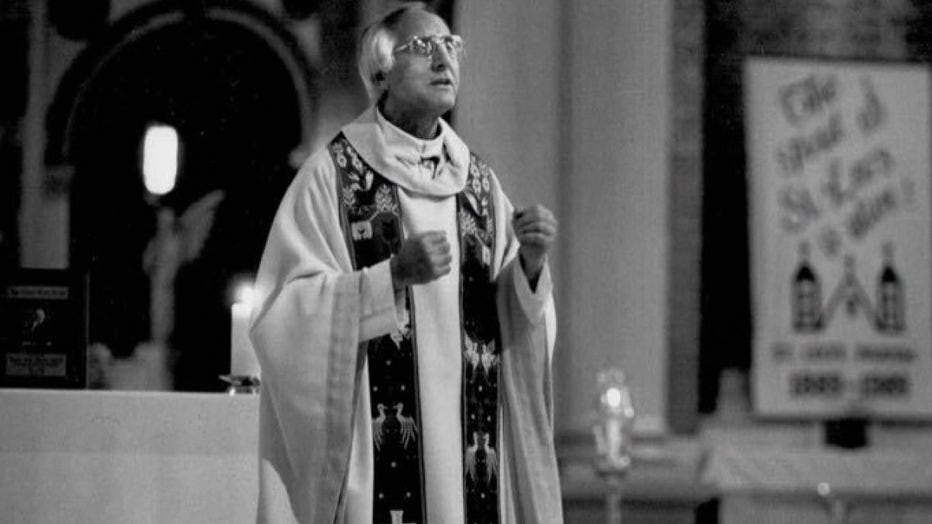Detroit Bishop Thomas Gumbleton dead at 94, remembered as 'a servant of God'
Detroit Bishop Thomas Gumbleton dead at 94
"Bishop Gumbleton was a prophet. He was a good priest. He was a servant of God. He checked all the boxes that Jesus did," said Monsignor John Zenz with Holy Name Catholic Church in Birmingham.
DETROIT (FOX 2) - Thomas Gumbleton, a retired Catholic bishop who was an international voice against war and racism, died Thursday. He was 94.
"Bishop Gumbleton was a prophet. He was a good priest. He was a servant of God. He checked all the boxes that Jesus did," said Monsignor John Zenz, pastor, Holy Name Parish in Birmingham.
A native Detroiter, Gumbleton never forgot the people of the city and always wanted to be near them.
"He lived right by the old Tiger Stadium, and he chose to live there right until his dying breath," Zenz said. "He walked the streets and was familiar with the people in the neighborhood."
Gumbleton’s death was announced by the Archdiocese of Detroit, where he was a clergyman for more than 50 years. A cause was not disclosed.
Beloved by many, the bishop's legacy lives on.
"Bishop Gumbleton was made a bishop at the incredible age of 38," Zenz said. "This never happens – and that was because he was very steeped in the thinking of the Vatican ll and Cardinal Dearden at the time wanted a bishop that was going to be able to model and articulate the vision of Vatican II."
During his service, much of his time was spent as an administrator at St Leo’s Parish. However, he also had an impact on Focus Hope – a non-profit organization in Detroit.
Gumbleton was "very supportive of Father Bill Cunningham, and Jerry Frazier when they started something called Focus Hope – the Black and the white hands coming together after the uprising of 1967," Zenz said.

Bishop Thomas Gumbleton (The Michigan Catholic)
Not only was this bishop devoted to the church, he was also a long-time activist who advocated for labor and social justice.
"For instance, going to Iran in 1979 during the hostage crisis was unprecedented," Zenz said. "To think that here a Catholic bishop was going to go and help try to mediate and get the hostages released at that time."
Gumbleton retired from active ministry in 2006, the archdiocese said.
He was ordained a priest in 1956 and promoted to auxiliary bishop in 1968. He worked at numerous parishes but was best known for 20-plus years of leadership at St. Leo in Detroit, which had a large Black congregation.
Those who knew the Bishop say he will live in the hearts he touched for generations to come.
"He connected as maybe the messenger of God to our world, especially here in Detroit," Zenz said.
AP News contributed to this report.

